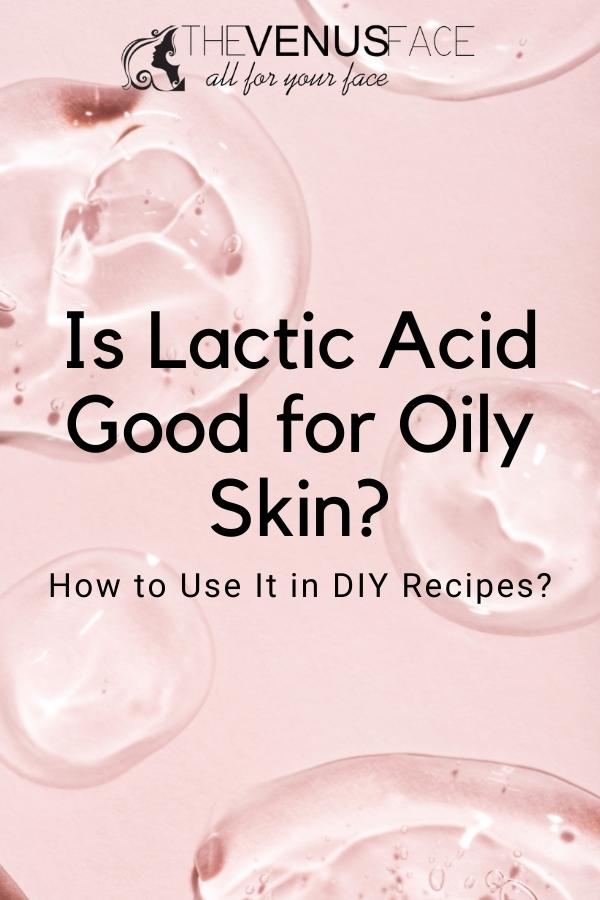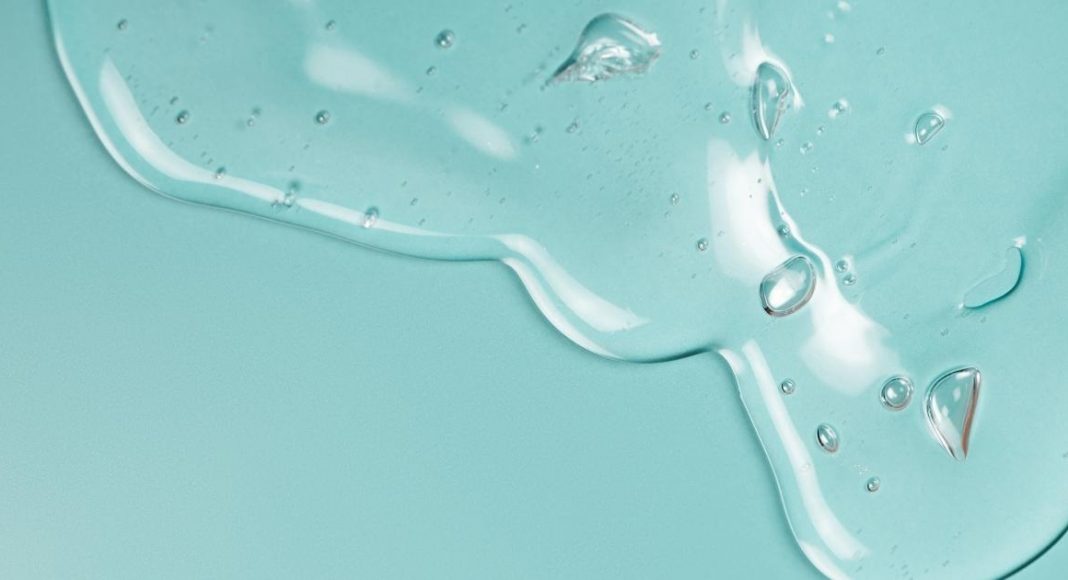Is lactic acid good for oily skin? Learn about it in this article.
Oily skin is a very common skin type that is characterized by excess sebum production. Sebum is a natural oil that our skin produces to keep it hydrated and protected. However, when we have too much sebum, it can lead to a number of problems, such as clogged pores, blackheads, and acne. One of the most common concerns with oily skin is that it can appear shiny and greasy. However, the good news is that oily skin also has some advantages such as being less prone to wrinkles and age spots.
When it comes to treating this skin condition, there are a number of options available. One popular treatment is lactic acid. Yet, is lactic acid good for oily skin?

As an Amazon associate, I earn from qualifying purchases.
Does lactic acid help oily skin?
Yes, it does. Lactic acid is a great treatment for oily skin because it helps to reduce sebum production. It also helps to exfoliate the skin, which can help to keep pores clear and minimize the appearance of blackheads and acne. In addition, lactic acid helps to improve skin hydration, making it look healthier and less shiny.
Lactic acid benefits for the skin
Lactic acid is an alpha hydroxy acid (AHA). It’s commonly used in skincare products, and for good reason. This acid is not only good for oily skin but also great for the skin in general.
Exfoliation
Lactic acid is an excellent exfoliant that can help to improve the texture of your skin. The exfoliating effect of lactic acid helps to remove dead skin cells and promote the growth of new, healthy cells. This can help to diminish the appearance of fine lines and wrinkles and give your skin a more radiant appearance.
Antimicrobial
This acid is an antimicrobial that helps to kill bacteria on the skin. This can be helpful in treating acne and other skin conditions. This is great for those with sensitive skin since the acid rarely causes any irritation.
Brightening effect
One of the most popular benefits of lactic acid is its ability to brighten the skin. This is due to its ability to reduce the production of melanin, which is the pigment that gives skin its color. By reducing melanin, lactic acid can help to lighten dark spots and brighten the overall complexion.
More: Homemade Face Bleach Recipes for Oily Skin to Brighten Your Complexion
Reducing fine lines & wrinkles
This effect is great for those who are looking to reduce the sign of aging. Lactic acid is a potent anti-aging ingredient that can help to improve the elasticity and resilience of your skin. This can help to minimize the appearance of crow’s feet, laugh lines, and other signs of aging.
Unclogging pores
This acid is also a great pore-minimizing ingredient. It can help to unclog pores and keep them clear of dirt, oil, and dead skin cells. This can help to reduce the occurrence of blackheads, whiteheads, and acne.
Reducing sebum production
For those with oily skin, this might be the most important benefit of lactic acid. By reducing sebum production, lactic acid can help to keep your skin looking matte and less oily.
How to use lactic acid for skin
There are several options for using this acid:
Store-bought products
This is a straightforward option as you can simply buy a product that contains lactic acid and use it according to the instructions. You can find lactic acid in a variety of products, such as cleansers, toners, serums, moisturizers, and masks…Or you can buy creams/lotions that are pure lactic acid and apply them to your skin. Just remember to read the instructions carefully and start with a lower concentration if you’re new to using acids.
Homemade lactic acid recipe
Just in case you prefer a more natural option, you can make your own lactic acid mask at home. The recipe below is simple yet effective to get you started.
Ingredients:
- Milk powder (see recommended brand)
- Apple cider vinegar (see recommended brand)
- Gelatin (see recommended brand)
How to make:
- In a bowl, mix 3 teaspoons of milk powder with 1-2 teaspoons of apple cider vinegar
- Next, add 1 teaspoon of gelatin to the mixture
- Stir the mixture well to form a paste
- If the mixture is too dry, add a little more apple cider vinegar, if the mixture is too liquidy, add more milk powder, the point is to have a smooth paste
How to use: wash your face with lukewarm water first, then use your finger to apply an even layer over your face and neck, now let the mask sit for 10-15 minutes or until it’s completely dry, after that, wash your face again with water.
Final thought
Lactic acid is a great choice for those looking to improve the appearance of their skin. This alpha hydroxy acid offers a variety of benefits, including exfoliation, antimicrobial properties, brightening effect, reducing fine lines and wrinkles, unclogging pores, and reducing sebum production. You can use lactic acid in a store-bought product or make your own mask at home. As a rule of thumb, always remember to do a patch test before using any new product on your skin. Using this acid regularly should give you noticeable results within a few weeks.
More:
- Use Salicylic Acid for Greasy Skin
- Use Hyaluronic Acid for Greasy Skin
- Use Glycolic Acid for Greasy Skin
- Use Niacinamide for Greasy Skin
F.A.Q
Is lactic acid good for oily acne-prone skin?
Yes, it is. This acid can help to unclog pores and reduce sebum production, which is ideal for those with oily skin.
Is lactic acid for dry or oily skin?
Both. This acid is not only good for oily skin but also great for the skin in general. It is usually used as an ingredient in skin care products to help brighten the complexion and reduce the appearance of fine lines and wrinkles.
Does lactic acid cause oily skin?
At this time no study or research suggests that lactic acid causes oily skin. In fact, some studies suggest that this acid can actually help to reduce sebum production for those with oily skin. However, overusing this acid or using it too often may cause dryness, irritation, and redness. So, as with any skincare product, it’s always best to start with a lower concentration and work your way up to avoid any adverse reactions.


